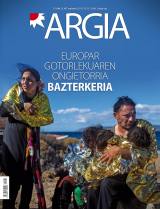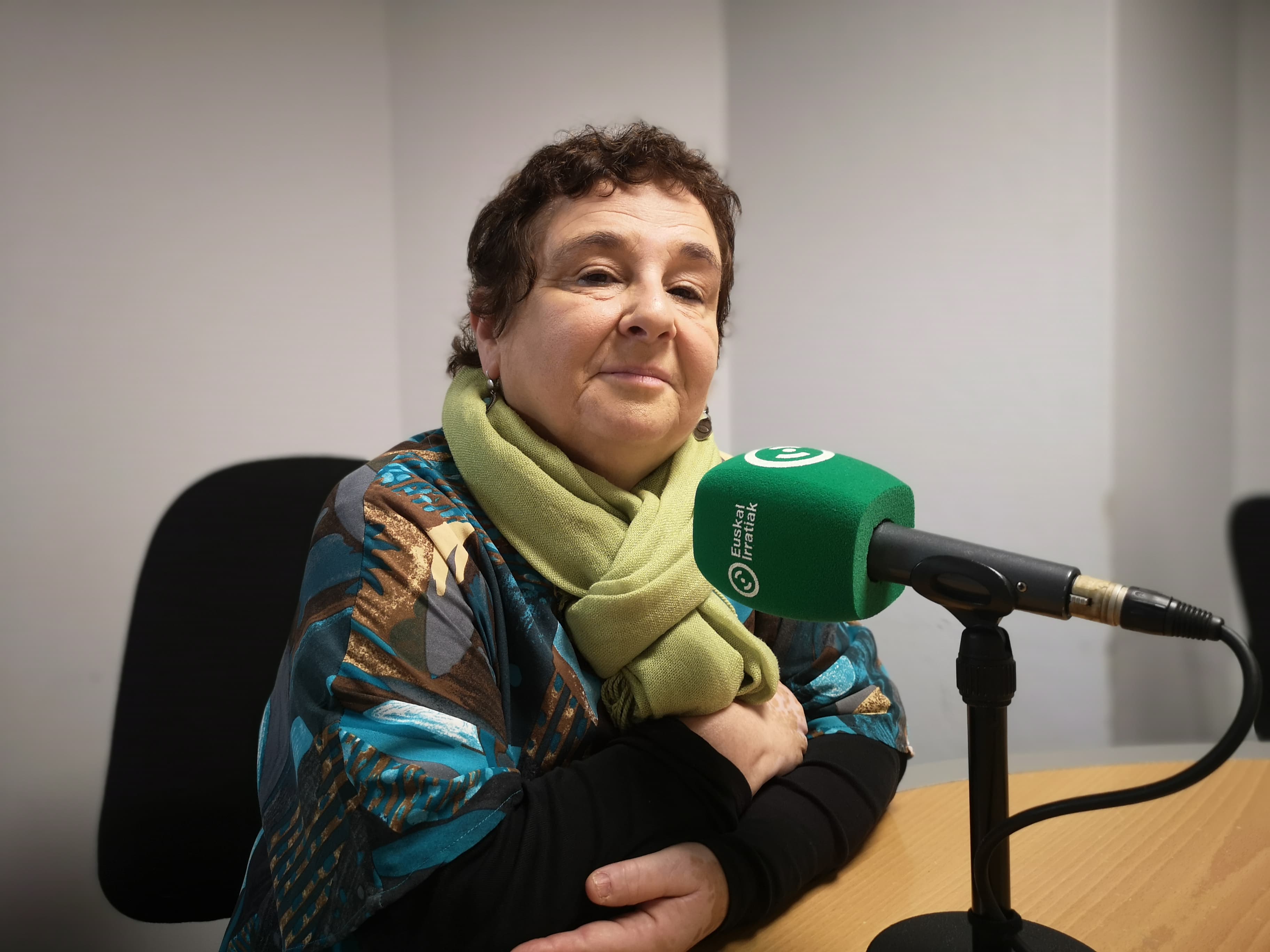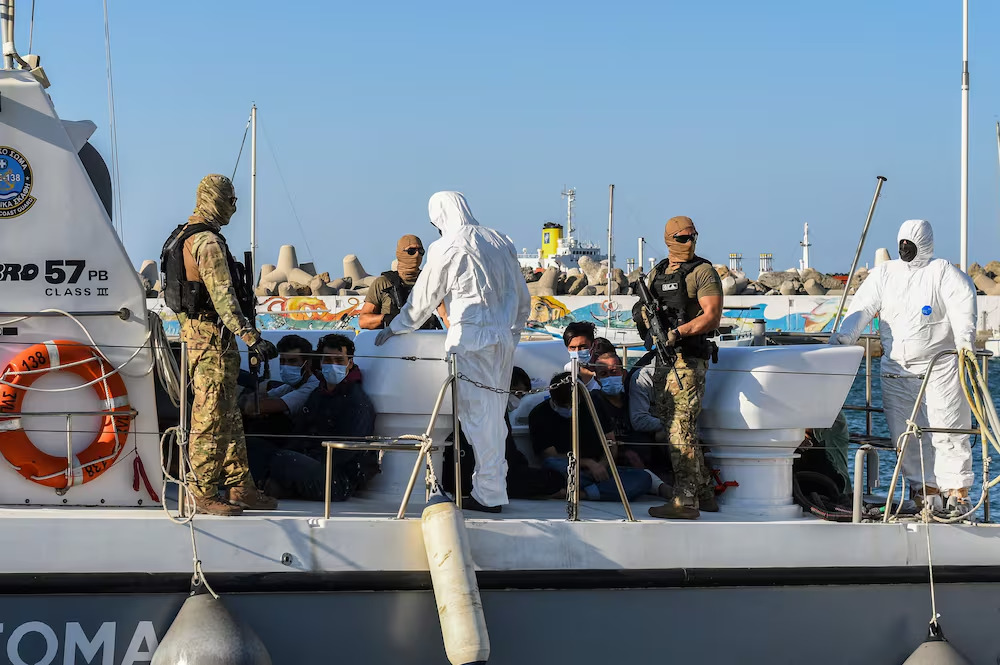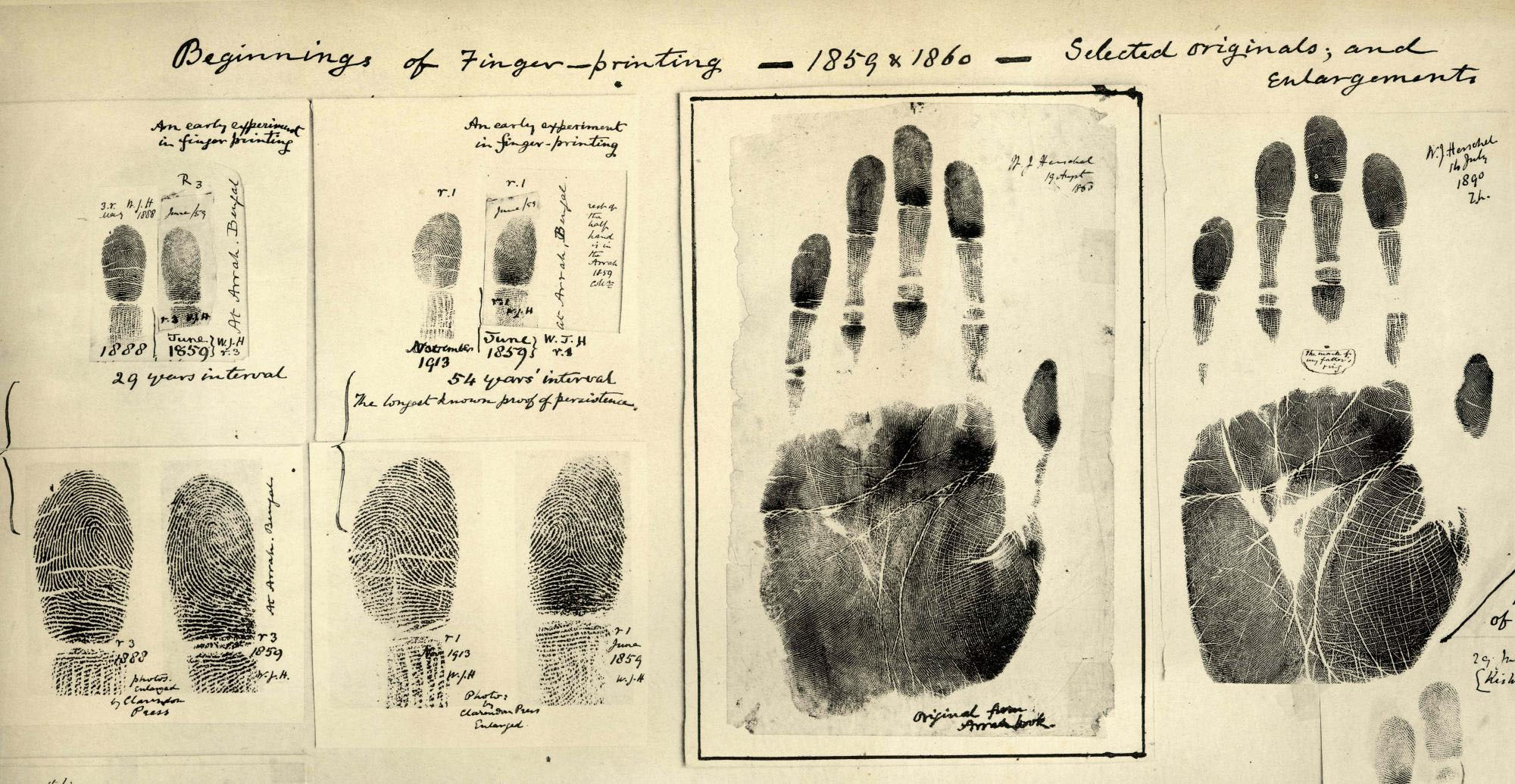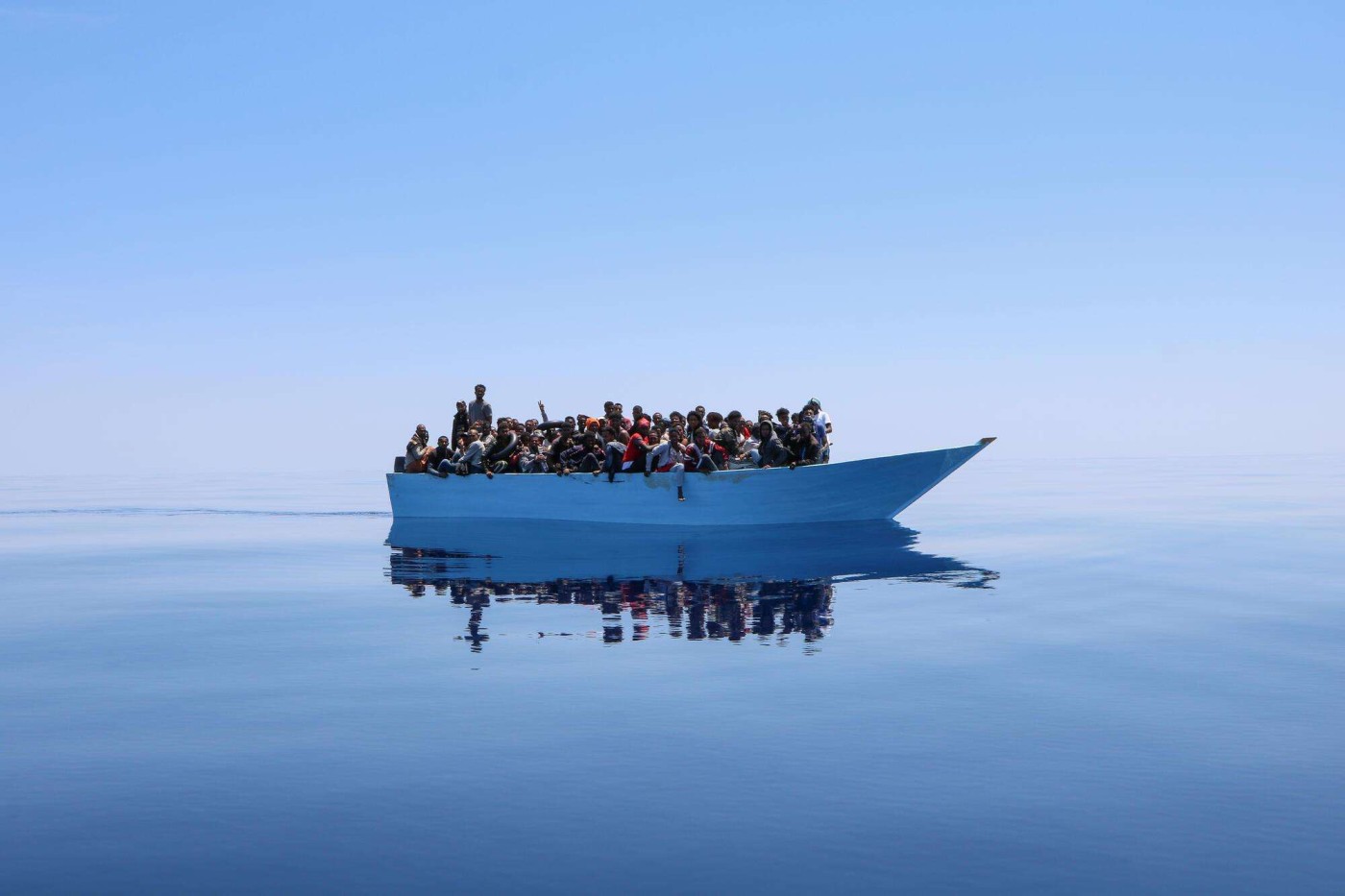And what about arrival in Europe?
- Although the issue of refugees has been withdrawn from the front lines of the media, thousands of people continue to flee to Europe. So far this year, some 800,000 refugees have arrived in Germany; in Italy, money for refugees has not come and live in a situation of uncertainty; in Euskal Herria, refugees will face many difficulties. We have addressed these three realities.
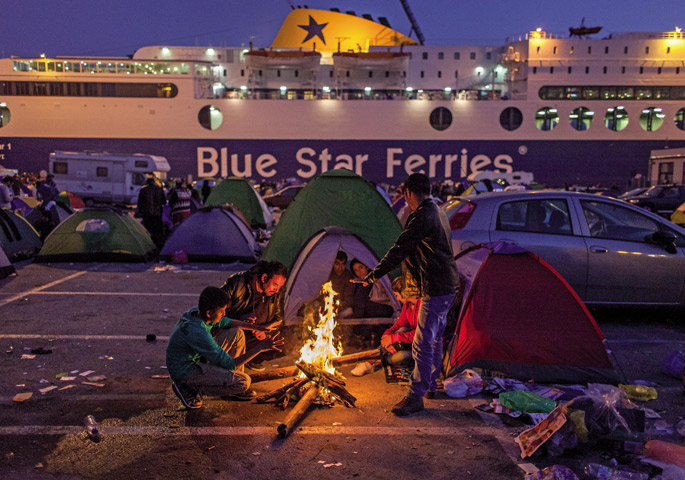
Hassan comes from Syria and has been in Germany for eleven months. In the Syrian capital, Damascus, he left his wife and two children. We've been with him in Schierling, a town of 7,000 people about 20 kilometers from Regensburg. Hassan is one of the many refugees who have lived there for a year.
In Damascus he owned a printing press, but when a bombing destroyed the company and its house, he had to flee. He tells us the steps we have taken to reach Europe: “I had to pay EUR 1,500 to reach Greece in a plastic container with another 33 people who could carry more than ten. In the middle of the journey the motor broke down and the Greek army rescued us.” After trying to cross the border between the Hellenic country and Macedonia under the control of human traffickers five times, he crossed Serbia, Hungary and Austria and came to Germany.
As a small country, Schierling does not have large buildings to house refugees in other parts of Germany. At the moment, Hassan lives in a private house along with 19 other Syrians, the Department of Security has reported. Uschi Grande tells us that this phenomenon is very common with the newcomers to Schierling. She belongs to an association that helps refugees, the head of Euskal Herria Lagunak in Germany and Partizan Travel in Germany. The reception of asylum seekers in private homes has become a source of income for the general population. The Government of Babaria pays refugees between EUR 15 and 30 per person per day: “If 20 refugees enter a house you can earn between 9,000 and 18,000 euros a month,” says Grandel, who has been living in Schierlige for 15 years; people’s friendly banks are being asked for loans to buy homes: it’s a round business.”
Asked if he wants to return to Syria, Hassan replies that he is grateful for the possibility that Germany has given him of staying in the country: “We have not come to sit on the couch, we have come wanting to work.” Integration, however, has not been easy for Hassan. In any case, everyday coexistence has helped to break the prejudices of citizenship: “Today is the day when I have a good relationship with neighbors and we help each other.”
The asylum request to Hassan has recently been approved. At this point you can start with the German course organized by the Government, “until now you could only attend the courses organized by the Schierling Help Team”. Other Syrians have already got those roles and the rest, according to Grandel, will get them in a short time. However, during the analysis of the asylum demand, it is not possible to work or attend the classes organized by the State, which creates particularly difficult situations, according to the activist for the refugees.
First- and second-degree migrants
Not everyone has had the same fate as Hassan. The first refugees who arrived in Schierling were from Ethiopia and are at risk of deportation, according to the same sources. In Schierling, refugees from Balkan countries also lived and were expelled from the country. Grandel tells us that a Chechen family was deported after a year in Schierling: “When they arrived in Chechnya they suffered a great deal of repression. The police arrested the man and I don’t know if the woman is alive.”
In the state of Babaria there are two houses for deportations: one in Bamberg and one in Manching. In the so-called “Registration Centres”, the groβekoalition or the large coalition, composed of the German Christian Democratic Party CDU and the Social Democratic parties CSU and SPD, states that they bring together those who have “few prospects” of staying in the German country and asylum seekers from “non-war” countries. The Government has just approved the construction projects of at least three more houses of this kind. In this way, asylum applications which lasted for several months will be resolved in three weeks. CSU policy, Emilia Müller, has today stated that “refugees not politically persecuted” will be expelled from the country – most of them from the Balkan countries, 40% according to statistics.
The German right is obsessed with differentiating migrants, that is to say refugees, who have been driven by war and the economic crisis. The “primary” migrants, most of them Syrians and middle class, have studies and the Germanic country is interested in them. According to the Statista statistics portal, currently almost a quarter of Germany’s population is over 60 years old and by 2030 the country will have seven million retirees. The President of the German Central Bank, Jens Weidmann, said that “the cheap labour of refugees” will be necessary to maintain economic well-being in the future.
In recent months the tension between the CDU and the CSU has been increasing, even internally. German Chancellor Angela Merkel is repeating again and again the famous motto “Wir schaffen is” (we can), that is, they have the capacity to welcome all refugees coming to Germany. CSU President Horst Seehofer and CDU Interior Minister Thomas de Maizie have said that no more people can be admitted. The CSU, more opposed to the issue of migration, is speculating on the construction of a barrier.
The opinions of the citizens are also being polarized: more and more initiatives are supporting immigrants, as well as money, clothing or food. Today, the problem is not the lack of volunteers, but the difficulty of coordinating the people who want to help. But the opposing views are also becoming increasingly clear: three years ago the European Union and the right-wing party AfD, which opposes the euro, had a 5% strength and would now double its results to become the third force in Germany.
Austria/Germany border
In the camps in Schärding and Salzburg we can see soldiers from the Austrian army guarding the border. For several weeks, thousands of refugees have been crossing the line between Austria and Germany every day. At first, most of the refugees were from Germany, Sweden or Norway, and now Austria is also receiving a large number of asylum applications.
Many friends have already passed the hardest part of the journey. The Red Cross and Caritas troops are coordinating humanitarian aid, but despite this, chaos has been noted in the camps. The experience of travelling, mistrust or inability to understand the language greatly complicate the relationship. Mattar comes from Gaza, which two months ago decided to leave Palestine fleeing the Israeli occupation of his brother. He has left his wife and two children, but once in Europe, the family is thinking of coming here. His aim was to reach Belgium and three days later he was with us in Brussels.
The road has not been easy: a few days after exile, the Israeli army killed its best friend. After going to Egypt in search of a visa to reach Turkey, he arrived in Istanbul by plane: “In Istanbul you can find people smugglers anywhere: hotels, restaurants or shops.” Like thousands of migrants, Mattar crossed the border between Turkey and Greece into a plastic container. “The price of the trip is getting cheaper as more or less people go on the boat: if the boat that traffickers offer you is plastic and unsafe, you pay between 600 and 1,000 euros, if better, over 3,000 euros.”
For an amount of 2,000 euros, they traveled in a plastic container with capacity for 10 people, along with another 40: "99% of the refugees arriving in Europe choose the cheapest ships, which is why they die so much," says Mattar. Human traffickers had knives and guns, and as Mattar and his brother knew how to navigate, they forced them to drive the boat. The traffickers threw all that he had on top of Mattar's brother, from cell phone to computer and money, among other things, into the water. They also tell us that they saw hundreds of boats on the road to Greece: “We saw corpses in the water, but under the conditions in which we were going we could do nothing.”
The young Palestinians say that the massification when they arrived on the Greek island of Mitiliniki was very large, but it is not. In the camp, they were allowed to stay for 15 days in the country, but the majority of the refugees do not stay there and the next day they go to Macedonia.
Mattar shares the view of the Syrian Hassan: "Merkel's attitude towards refugees is being the right one, the minister said. We came to work in Germany, not to be at home without doing anything. Many refugees have studies in medicine, law, engineering… That’s what we’re going to use to strengthen the German economy.” He is now waiting to receive the bus that will take him to Germany, to start a new life at the penultimate stop.
Global refugee crisis:
Failure of integration policies
In Euskal Herria, refugees also have a hard time.
"Segurtasun gehiago, inmigrazio gutxiago". Bruno Retailleau barne ministro frantsesa argi mintzatu da, kargua hartu berritan. Etorkinen gaineko kontrola azkartu nahi du Michel Barnier lehen ministro eskuindar-kontserbadorearen gobernuak, eta jada Retailleauk aitzinatu... [+]
Europar Batasunean berriki onartu den Migrazio Itunak, asko zaildu dizkie gauzak euren herrialdetik ihesi doazen eta asiloa eskatzen duten pertsonei. Eskuin muturraren tesiak ogi tartean irentsita, migratzaileentzako kontrol neurri zorrotzagoak onartu dituzte Estrasburgon,... [+]
Migratzaileen kopurua anitz emendatu da Irun eta Hendaia arteko pasabidean. Irungo Harrera Sareak ohartarazi duenez, otsailean 600 pertsona lagundu dituzte, iaz, urte osoan 2.700 izan zirelarik. Iragan urtarrilean, 2.700 etorkin heldu dira Kanariar Uharteetara, egunero 80... [+]









